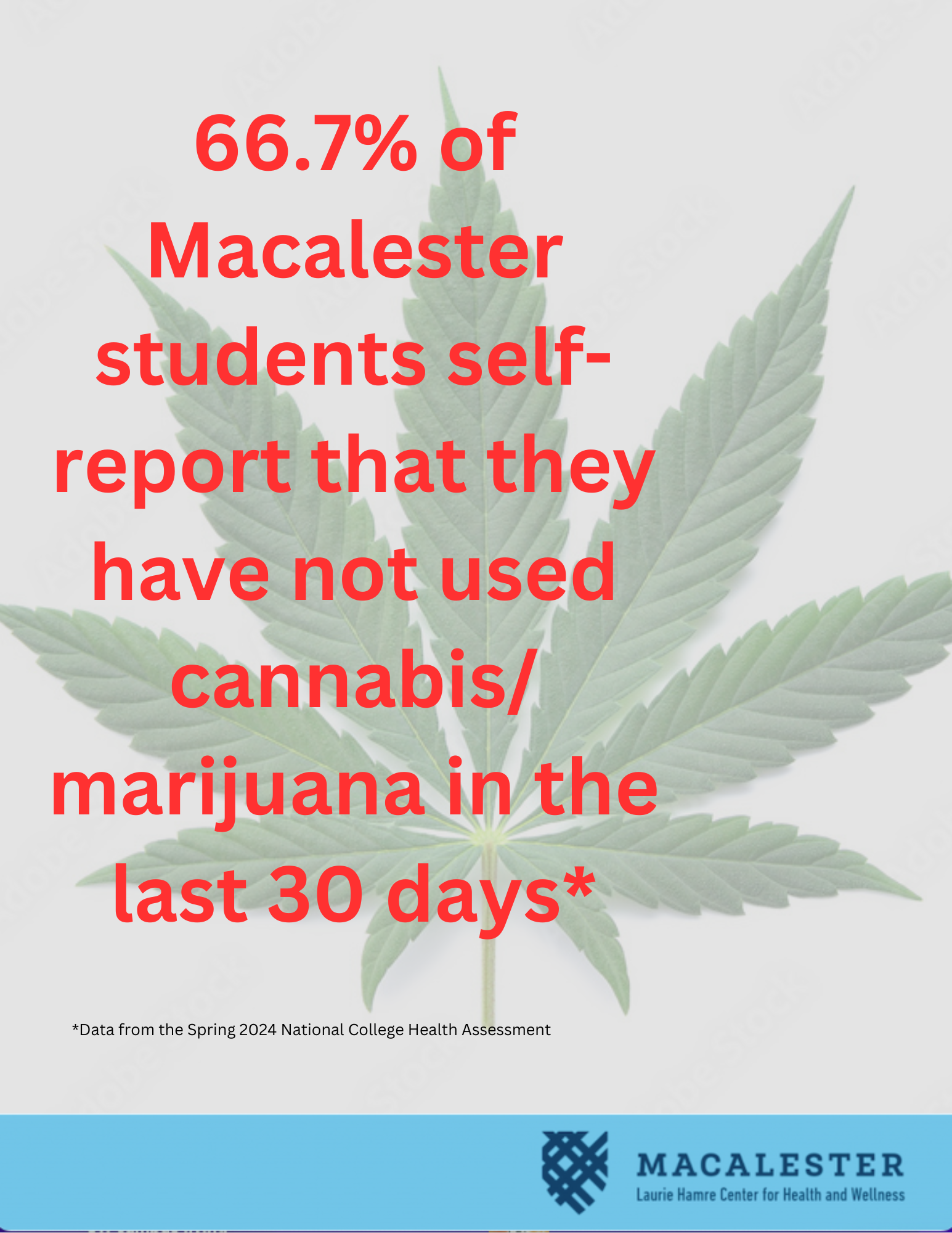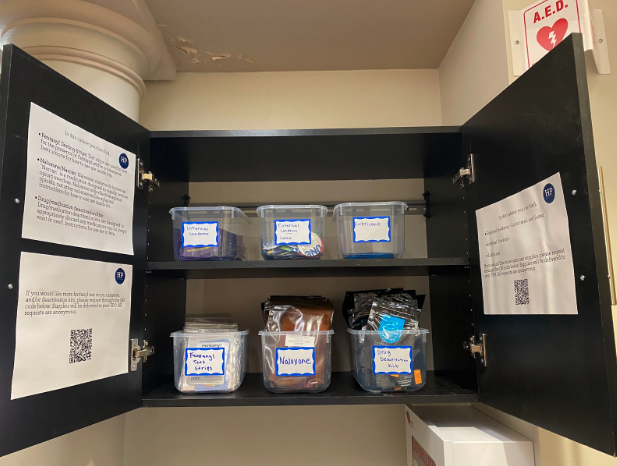Alcohol, Cannabis & Other Drugs
Contact
Laurie Hamre Center for Health & WellnessLeonard Center Room 53 651-696-6275
651-696-6687 (fax)
health@macalester.edu
Social Norms Data: Get the Mac Facts



How Does Health Promotion Advance Harm Reduction?
Health Promotion utilizes a multi-faceted harm reduction-based approach that empower students to make choices that work best for them. While many Mac students choose to abstain from substance use, some students may choose to use alcohol, cannabis, tobacco and other drugs. To ensure a healthier and safer Mac community, our public health approach encourages those who use substances to examine and utilize harm reduction strategies to lower the risk to self and others.
Health Promotion takes a multi-faceted approach to advancing harm reduction. Learn more about our efforts below:
Harm Reduction Cabinet
Health Promotion is proud to provide no-cost Naloxone/”Narcan”, fentanyl test strips, and drug deactivation kits to the entire community. Macalester community members can pick up any of these supplies from the Harm Reduction cabinet that is located inside the first doors of the library. Supplies are available 24/7.

Workshops on Alcohol and Other Drug Use
Health Promotion offers harm reduction-based workshops that empower students to make choices that work best for them. Students will leave the session with a better understanding of the behaviors of their peers, and reflect on how this may impact the choices they make and how they support those around them. To request “Mac Facts: Social Norms Trivia”, please request here.
Tobacco-Free at Mac
Did you know that 70% of Macalester students report never using tobacco or nicotine delivery products (cigarettes, e-cigarettes, Jull or other vape products, water pipe or hookah, chewing tobacco, cigars, etc) in their lifetime? Source: NCHA Spring 2021, n=514
Tobacco products, in all of their forms, often have dire impacts on the environment. Macalester is a tobacco-free campus. This includes the use of electronic-cigarettes and any other smoking products. Visit Tobacco Free At Mac to access resources to help you quit, learn more about tobacco and vaping, and read Macalester’s tobacco-free policies.
Are there any off-campus resources where I can evaluate my relationship with substances?
Yes! Check out the following local support groups:
- Alcoholics Anonymous Local Meetings
- Narcotics Anonymous Local Meetings
- North Star Problem Gambling Alliance
I want to learn more about the harm reduction supplies that Macalester offers
To learn more about Naloxone/ “Narcan”, fentanyl test strips (FTS), and drug deactivation kits, please click here.
A map of locations to pick up naloxone in the community can be found here.
To learn more about how to administer Naloxone, check out these community resources: